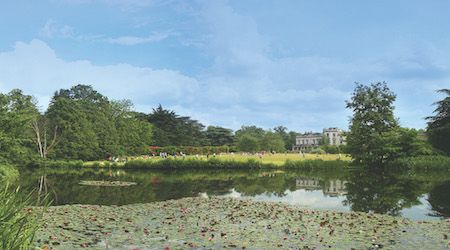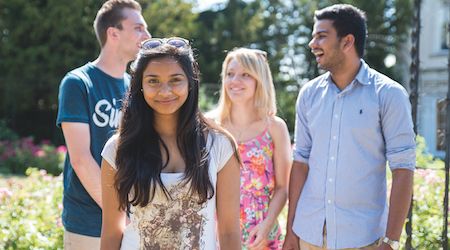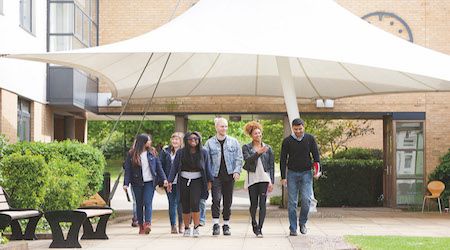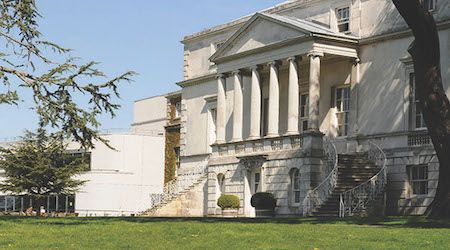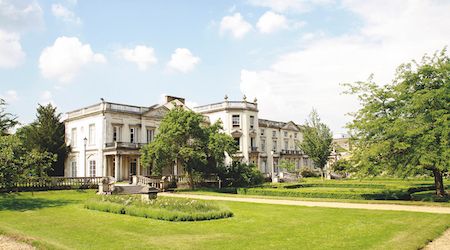University of Roehampton, BA (Hons), Education and Sociology
Education Year 1: The student studies a number of compulsory courses introducing them to the main ideas in education; studying the history of the education system helps the student see why it is structured as it is, and a study of the philosophy of the system provokes them into questioning their educational values; the student tackles child and adolescent psychological development and investigates sociological influences such as race, gender and class; the student may also able to choose from a range of optional courses according to their particular interests. Year 2: in the 2nd year the student takes a compulsory course exploring controversial contemporary issues in education; the student may be able specialise by studying a particular age range if they wish, or they can focus on an area such as technology, values in education, or the spiritual and emotional aspects of learning and schooling; there is also an exciting opportunity to undertake an education placement providing opportunities to work with children on an informal basis; the student benefits from optional modules that cover a wide range of topics which may include: comparative studies (education in other countries); gender and race; education in museums; careers education and special educational needs; the student can study from a range of supported learning, building experience and confidence in various fields of employment; examples include: work with youth clubs; nurseries; behaviour units and youth offending teams; some other external certification and training with organisations such as the National Society for the Prevention of Cruelty to Children/National Pyramid Trust and the Communities Empowerment Network. Year 3: in the 3rd year the student can choose to undertake a special study in an area of personal interest with the support of a tutor. Sociology Year 1: The student is introduced to the subject through modules which may include: sociology: from the personal to the global; theory I: the sociological tradition; sociology and everyday life; and politics and policy. Year 2: the student examines local, national and global issues in modules which may include: living the city; travel and tourism; ethnicity and migration; health and illness; power and politics; the student also receives training in social research methods and may be able to take cross-listed modules on sociological aspects of human rights, criminology, childhood and social anthropology. Year 3: there are opportunities for independent study and placements in voluntary organisations; the student can also choose from optional modules which may include: globalit and globalisation; intimacy and the self; food and society; sociology of death.
Other courses at University of Roehampton
Photos
